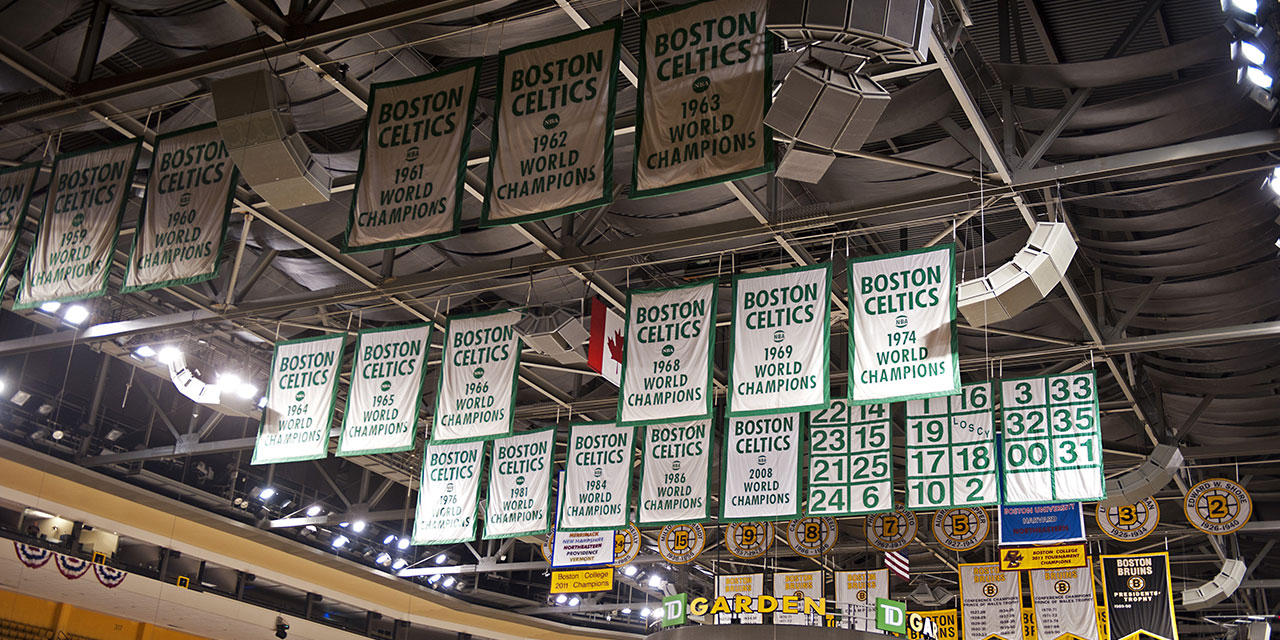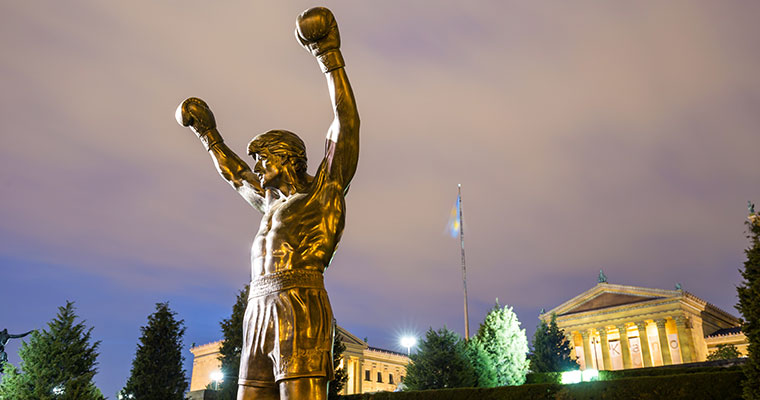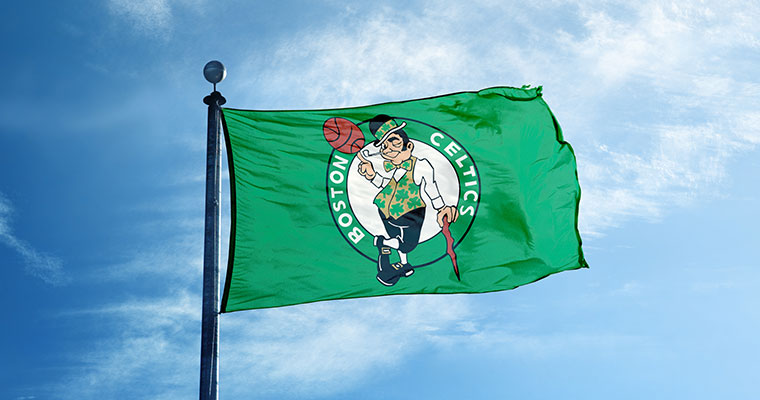Beware The Underdog

With more ‘Superteams’ than ever before in the NBA, is there any room left for the underdog?
As a huge Boston sports-loving agency (Bruins, Celtics, Pats, Red Sox, even Revs) I’ll admit, I had no interest in watching the Celtics get steamrolled in Game 3 of the Eastern Conference Finals last night in Cleveland. I avoided the entire game, and come to find out the next morning, the C’s had won. But, how long would the euphoria last this time around?
Very few of us expected the C’s to win a game, let alone IN Cleveland. So, how did that happen? With the Celtics being such an underdog team in comparison to both the 2017 Golden State Warriors and Cleveland Cavaliers, the majority of people had imagined the C’s would get swept much like the San Antonio Spurs did by the Warriors….
Now, we all knew it was pretty much inevitable the Cav’s would win the series, but with the first two games being absolute travesties (for the Celtics), I’m sure most of Boston couldn’t bear themselves to watch another 50+ point loss in an NBA playoff game. Not to mention this postseason has been one of the worst all-time to watch, as different teams are on completely separate levels than others. It’s really been like watching a JV high school teams compete against All-Star NBA teams. Some of them are just on a whole other level.
But, the Celtics somehow came about to trip up the mighty Cav’s in Game 3….and that was a surprise to us all. So, how did they do it?It all came down to tenacity. The Celtics are (currently) a team of mix-matched misfits who have joined together as a team and have enjoyed the best possible results. I mean, they finished 1st in the Eastern Conference, so they’ve got to be doing something right, right?. There are no superstar athletes, and everyone is pitching in when and where they need to. Much like the Boston sports mantra of , ‘Do Your Job’ the Celtics have followed suit and have enjoyed rave reviews throughout the season, especially in big games…which has led to their stature as being a true, ‘underdog’ team going into the postseason.
Now, back to Game 3 of the Eastern Conference Finals. Of course, when all of Boston collectively woke up the next morning, we enjoyed our win and day in the sun, the Boston sports media promptly went awry. What if we won the series….and of course, the next two days were filled with the humdrum of, ‘Maybe, we can actually pull this thing off’….and see, that’s the beauty of sports. In moments of pure darkness, where everything seems destined for failure, a surprise hits. The light beckons. The bulb goes off in your head. You feel a sense of hope. Even confidence. And that’s the urge to root for the underdog.
And no matter who your team is, everyone loves an underdog.

The point is: everyone loves to root for the underdog. Everyone loves a good narrative, a reason to cheer. The tingle you get under your skin when the unknown occurs. When you, or someone you root for faces adversity…but why is that?
It all has to do with emotion. The why. The how. The what. Sports have a way of capturing us from the inside out. There’s nothing that draws excitement (and a crowd) like a good game, and it’s during those games we most always find ourselves rooting for the perennial underdog. As much as we love to see people win, we love to see winners lose. Upsets are always happening in sports, and it’s what helps turns a profit, it helps drive the experience. It’s the calling card that reaches into our chests and grips our hearts with fervor. The upset will forever go hand in hand with the story of the underdog….
So, what does this have to do with the NBA?
Now, get to the probable outcome of the series, let’s talk about how even the mightiest of titans fall sometimes. In every industry, sport, and competition, everyone is susceptible to a surprise. It’s part of the great American story. The folklore of being outnumbered, outmanned, outgunned, you name it. Some of history’s best stories are those of the underdog. Look at the 1980 ‘Miracle on Ice,’ or the 2004 Red Sox where they came back to beat their arch-nemesis New York Yankees, after going down 0-3 in a best of seven game series. Hell, even look at the 2007 New England Patriots, who were 18-0 and were at the cusp of having the only perfect season (in modern history), yet it was snatched away by the wildest of catches and a lucky comeback by an underdog quarterback for the New York Giants.
But, as far as the Celtics go, looking back to Game 3, somehow Avery Bradley hit a mind-bending three-pointer at the end of the game and stunned every fan in Cleveland, and across the nation. The shot itself was pretty amazing, and despite the fact the Cavs played a less than stellar game, they were still undefeated so far in the 2017 NBA playoffs, and up until that shot, they had not lost in the postseason. Yet, somehow, succumbed to an injury-ridden Celtics team on their home court.
Now, that was just Game 3. Of course, Lebron James would come back with a fury on his home court to take a 112-99 Game 4 victory. Which, all of Boston saw coming. But the theme here is still clear. Everyone is rooting for the underdog (outside of Cleveland and maybe Golden State who want a shot at the title). Why? Because despite the Celtics being the most-winningest NBA franchise of all-time, everyone loves to root for the underdog. It’s the story of our history (the ‘Us’ against them mentality). And sports is the prime example of how and why the underdog story matters to each and every one of us.
So, where are we going with this?
Every industry in the world is ripe with competition. It’s part of what makes for a healthy economy, and as far as competition goes, that competitive edge between companies is what ultimately drives forth the best deal and opportunity for the consumer. And ultimately, it’s the best opportunity, deal, and experience that is precisely what the consumer wants. But in the NBA’s case, the competition is as uneven as it’s ever been, and that’s creating a massive problem. Fans from all 30 teams (sans the Warriors and Cavs) are feeling left out. Cheated, almost, due to an uneven (or fair, really) sense of competition. The recent creation of these NBA “Superteams,” which started with Lebron going to the Heat with Dwayne Wade and Chris Bosh, really set the tone for a rocky next decade or so. When he left to go to Miami in 2010, everyone in the league knew it was so he could win a championship or two. And that’s exactly what he came away with, two championships, before returning to Cleveland to win another one in 2016.
Sounds like your just complaining…(you hate us ’cause you ain’t us)
Listen, it’s not about our agency being Celtics fans and we feel like we’re being cheated in a massively underrated way. This is an NBA problem. This is a business problem. When one or two teams have a monopoly on the rest of the league, it’s now a fan problem, where eventually, they will buy less tickets, memorabilia, and worst of all, stop watching. The athletes will still compete, but the fan engagement will suffer, which despite the huge payroll and upcoming sponsorship of team’s uniforms, the NBA will have to somehow deal with.
This has nothing to do with Lebron James being the freak-athlete he is. The Cavs have pieced together a remarkable team (deservingly, so) with Kevin Love, Kyrie Irving, Kyle Korver, Iman Shumpert and that’s to no one’s fault, except the NBA. On the contrary, they should be applauded for taking such audacious moves to piece together a killer team. Plain and simple, the Cav’s and Warriors have taken advantage of a broken system by being able to place superstar athletes together on the same team, creating an unfair advantage for other mid-market teams. And while the system itself closely resembles capitalism at its finest, it’s ultimately the fans of the NBA who suffer.
Granted, the probable outcome of the NBA Finals being The Cavaliers vs. Golden State will bring a whole lot of people to watch, but at what cost? Have any of the playoff series been interesting whatsoever this year? How many fans feel disengaged from the creation of ‘superteams?’ And what is being done about it? SHOULD anything be done about it?
The whole ‘superteam’ situation (in our humble opinions) should be vastly alarming to Commissioner Adam Silver, because it presents a widely uneven distribution of talent among the 30-team league. How can one team hope to compete year after year, when great players have grouped together to run a monopoly over the rest of the teams? Again, in a way, some might refer to it as a free-market system, or even capitalism, smart business, or simply the phrase, ‘It is what it is,’ but here’s the conundrum…The NBA isn’t about the teams, championships, or even statistics. It’s about the fans.

In conclusion…
The NBA as a whole is a business, and people seem to forget that. And when the majority of that businesses customers are feeling cheated the system begins to crack. Money stops flowing in. Fans stop watching, they stop buying jerseys, tickets, you name it. Not everyone, of course, but enough of them to make a dent in the NBA’s primetime views and to show up on the P+L sheets at the end of the day. Which should be alarming. If the NBA wants to avoid a recession, keep fans on board, and prevent a big dent in their profits and ratings, they’re going to have to create some competition back into the system. Nobody can watch the same NBA finals (with the same two teams) for two, or even three years in a row, and that’s exactly where we are heading. Whether it’s balancing out the teams, preventing the creation of super teams, limiting the salary cap, creating closer games, and more competitive environments, the NBA has got to do more. And it’s a serious issue that other sports leagues have yet to face in the modern day and age.
And as far as the fans go? What’s to be done? Well, it all starts with rooting for the dark horse. Beware the underdog.
Go C’s.
If you’re an underdog client and need the power and innovation to catapult your brand or company onto the map, get ahold of us by emailing our new business guy: Cam King at:cam@inphantry.com or follow us on Twitter @inphantry
